
al-Joumhouria, 23.4.2013
The two kidnapped metropolitans are Metropolitan Youhanna Ibrahim,
Syriac Orthodox Metropolitan of Aleppo, and Boulos Yazigi, Greek
Orthodox Metropolitan of Aleppo and Alexandretta, brother of Greek
Orthodox Patriarch John X Yazigi, who has been struck with a double
tragedy.
Bishop Matta Khoury, secretary to Syriac Orthodox
Patriarch Zakka I Iwas, spoke to al-Joumhouria on behalf of the
patriarch, who had just come out of the hospital on the night of the
incident. He confirmed, also in his capacity as Bishop of Bab Touma in
Damascus, that the Patriarchate will not take any decision while
awaiting any contact from the kidnappers, in order to know their
intentions and demands.
Khoury states that, "As Christian
clergy, we do not fear Syrian Muslims. We have no problem with any
Syrian Muslims, whether they are Sunni, Shii, or Alawi. Rather, our
problem is with foreign Muslims who come from abroad, Chechens, Taliban,
Afghans who want, for example, to fight Russia in our region. " He
adds, "We have lived with Syrian Muslims for a long time and we coexist
with them in peace. We are brought together by feasts and united by
traditions." Khoury emphasizes that "Muslims from all sects have built
our patriarchal residence in Bab Touma, decorated it, and carved icons
of Saint George for us."
Khoury likewise affirms to
al-Joumhouria that his Muslim children who fled from Homs and whom he
met in Lebanon confirm to him that "there is no connection between
Syrian Muslims and what is happening. They are sorry about what has
happened in Homs and are afraid of the foreign groups that have come
from abroad." He points out that, "the Syrian Muslim does not constitute
a source of fear for the Syrian Christian, as history testifies."
Details of the Kidnapping
Bishop Matta Khoury recounts to al-Joumhouria the details of what
happened: After some effort, one of our priests in Aleppo was able to
contact us and to confirm the kidnapping of Metropolitans Youhanna
Ibrahim and Boulos Yazigi, who were on a humanitarian mission that they
had been preparing for a long time, obtaining the release of an Orthodox
and a Catholic priest. They were accompanied by a man named Fatuh, who
has been Metropolitan Ibrahim's driver for more than five years, and a
fourth, unidentified person.
On their way to the specified area
to carry out the task which, according to al-Joumhouria's information
was ready and approaching its conclusion-- liberating the priests, their
car encountered a foreign group.
Khoury reveals that initial
information indicates that the kidnappers are Chechens and when they saw
that two of those riding in the vehicle were laypeople, they threw them
out of the car and fled with Metropolitans Yazigi and Ibrahim in an
unknown direction.
Khoury confirms that the fourth,
unidentified person is "a close confidant of Metropolitan Yazigi" and he
believes that he was playing a fundamental role in the operation to
release the priests who had been taken hostage. He reveals that this
person and the driver were both thrown onto the road. After several
hours, news arrived from Fatuh's family who contacted the Metropolitan's
office in Aleppo and informed them that his son had found him murdered
and had identified him from distinguishing characteristics. The
whereabouts of the fourth person are still not known.
However,
Khoury confirms that the fourth person is free and that "he is the one
who made it known that the kidnappers did not attack the two of them,
but rather threw them on the side of the road before each left in a
different direction. He confirms that the party that found and murdered
Fatuh are unconnected to the kidnappers."
Khoury recounts that,
"the agreement to release the hostages required Metropolitan Yazigi to
come from Turkey while Metropolitan Ibrahim set out from Aleppo, and
that they would meet at an agreed-upon location in order to carry out
the operation to liberate the priets."
Khoury, who is
responsible for the patriarchal residence in Bab Touma in Damascus and
is currently overseeing the Syriac Orthodox Patriarchate, explains that
the fourth person confirmed this story and said that the kidnappers'
features indicate that they are foreigners. Chechens are distinguished
by their accent and coloring (beards, light skin, and blue eyes, in
addition to language) and so we deduce it from the information that we
have from Metropolitan Yazigi's friend.
Regarding Fatuh's
family, Khoury states that they received his body and identified him,
emphasizing that "we acknowlege that the kidnappers are not the driver's
killers and that, according to the fourth person, they are Chechens.
However, we are not sure whether they are really Chechens or whether
they belong to another group."
He adds, "We are waiting the
kidnappers to contact us, the patriarchate, or the metropolitan's office
in Aleppo so that we can know their demands. Our sources confirm that
efforts continue to release the two metropolitans and for this reason we
have waited to publish a statement and we have not yet contacted the
Greek Orthodox patriarchate.
We are calmly working
individually, but this does not mean that we do not want to cooperate.
Just the opposite, we want each one to work separately because we do not
want to make a hasty decision, lest we put the metropolitans' life in
danger."
Khoury called for "Waiting for the legal deadline, 24
hours, before holding any wider meeting or making any serious decision."
He explains that "We do not possess much information to act upon. Our
position as a patriarchate is unenviable position. We live in a state of
sorrow, grief, and pain and we are upset by this news, especially
Patriarch Zakka Iwas, who left the hospital today and his health is
critical. The news startled him and increased his pain."
Khoury
emphasizes that, "We have always denounced and continue to denounce
attacks on all priests, whether they are of our community or of another
community, just as we denounce the death of Muslim clergy because the
mission of all clergy is peace and love. Their position with the
opposition or the opposite, but rather a purely humanitarian position."
Khoury described the metropolitan's office's position as "bound" and we
are unable to take any decision or issue any statement because we do not
want to subject the metropolitans to danger.
He explains that,
"Kidnappers' demands are usually material or with the goal of political
pressure, to pressuring the state to arrange an exchange. That is, the
kidnappers may have a list of names they want to make an exchange for."
He states that, "The kidnapping will not be easy for Christians in
Syria because Metropolitan Yazigi is close to the regime and to the
opposition and he has equally good relations with both sides. He has
political tact, and whenever he expresses his opinion, his demands are
the same as the demands of honorable Syrians: reform and an end to
corruption."
Khoury denies that the two metropolitans have
enmity for any specific group, "and so we support the possibility that
the kidnappers are neither close to the regime nor to the opposition and
are not Syrian." He adds, "They could be Afghan or Chechen extremists,
Jabhat al-Nusra, Lybians, or Egyptians who have come from abroad.
We do not know who Metropolitan Yazigi was in contact with in order to
release the priests. However, it is most likely that he was not in
contact with foreigners, but rather the Free Syrian Army. News of their
coming may have been leaked or their kidnapping could have happened by
chance, since the area is not secure."
Khoury calls for
patience, pointing out that the fourth person "was only with difficult
able to get to a telephone and communicate with the Greek Orthodox
metropolitan's office in Aleppo. If the situation is not resolved
tomorrow and the metropolitans return to their homes, we will work on
the level of the two patriarchates."
Khoury expresses his
sympathy for Patriarch John X Yazigi, who is facing a double problem,
for his family and for his church. He states that his heart is large and
that he would deal in the same way, whether the person being kidnapped
is his brother or any other person from his community.
Khoury
warns that "Over-analysis could cause danger for the metropolitans. For
this reason we must be patient because each group of kidnappers has its
own way of dealing and we do not want recklessness or their being
killed."
Khoury closes by saying, "Today is the Feast of Saint
George. For the Syriac Patriarchate and bishops, it is a feast for
praying that all the kidnapped priests may be freed, especially
Metropolitans Yazigi and Ibrahim." He calls on Lebanese in general and
especially Christians to "participate in prayer for the intention of
their speedy release and the release of the nation's captives."
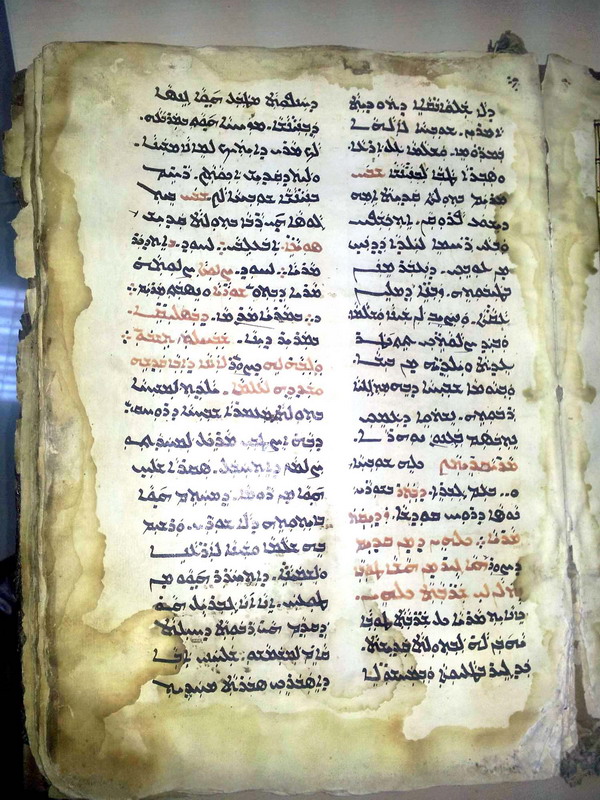
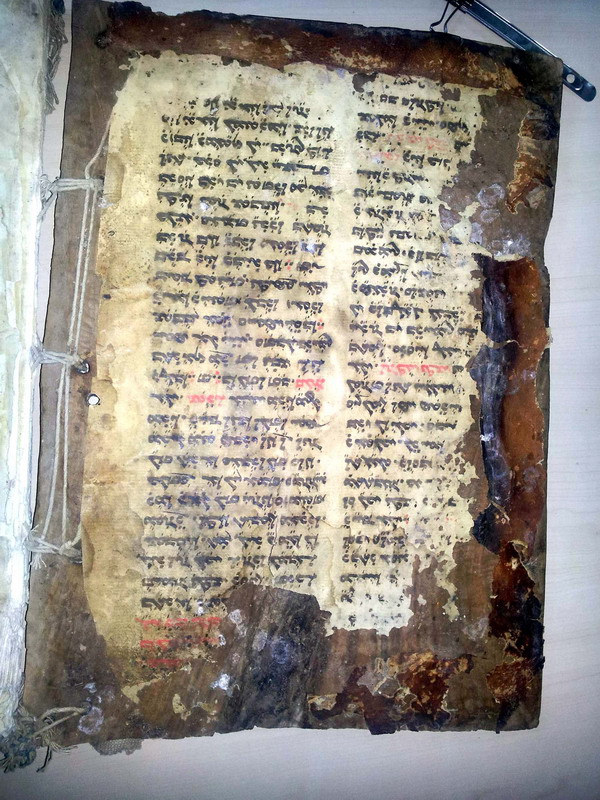



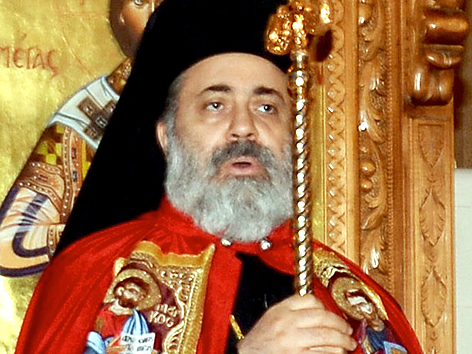
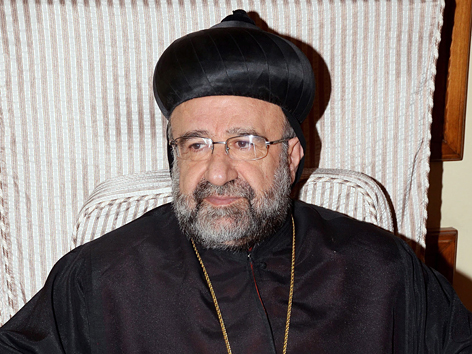


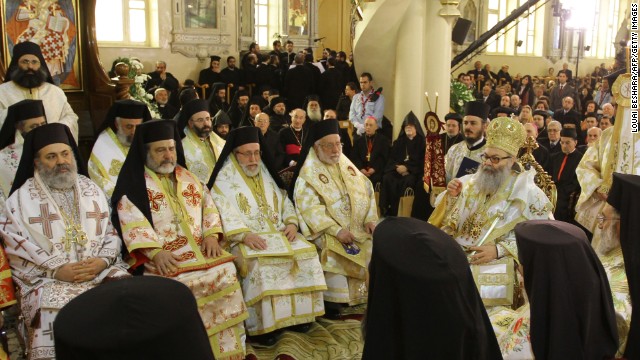


 بيان صادر عن بطريركيّة أنطاكية وسائر المشرق للروم الأرثوذكس وبطريركيّة أنطاكية وسائر المشرق للسريان الأرثوذكس
بيان صادر عن بطريركيّة أنطاكية وسائر المشرق للروم الأرثوذكس وبطريركيّة أنطاكية وسائر المشرق للسريان الأرثوذكس




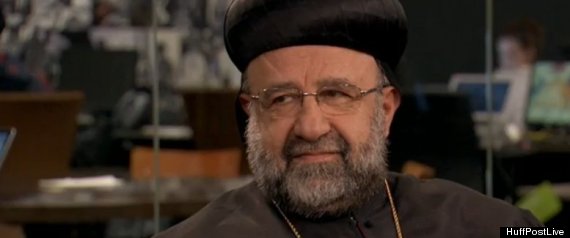


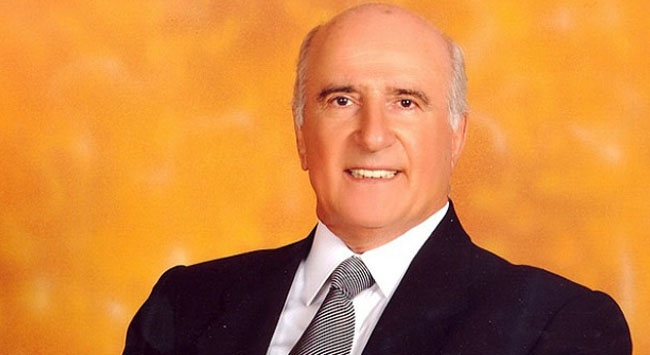
Reuters | By Khaled Yacoub Oweis and Dominic Evans
Reuters | Posted: 04/22/2013 5:09 pm EDT | Updated: 04/22/2013 5:47 pm EDT